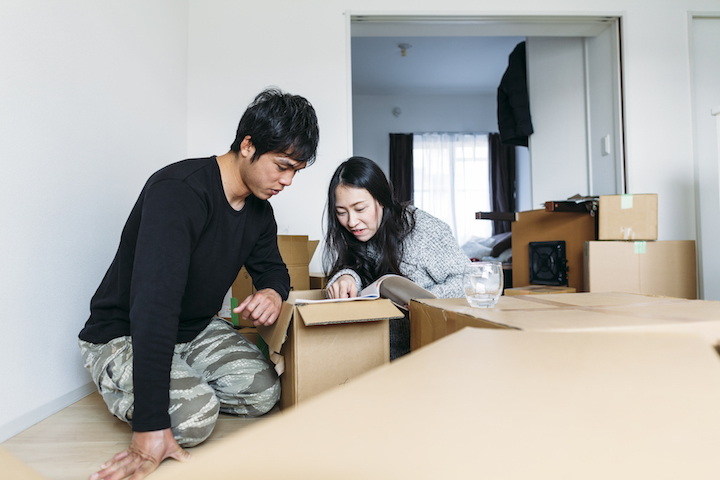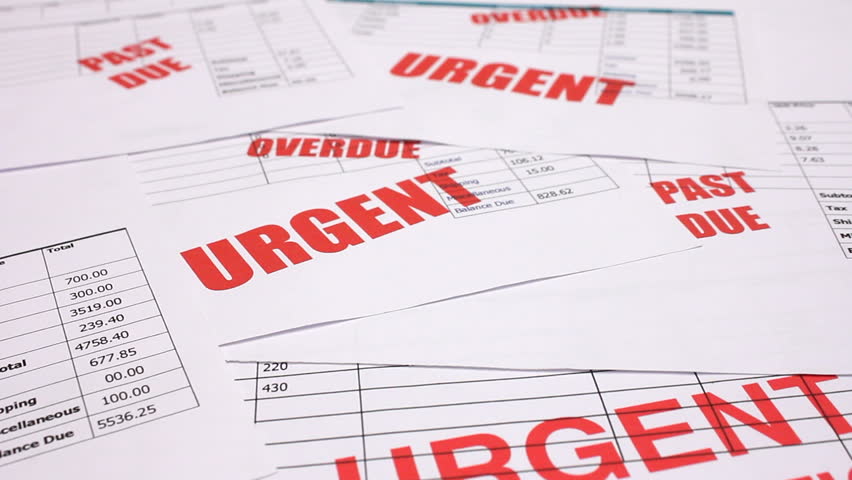At one point or another, the Singaporean millennial would have harboured thoughts of renting his/her own apartment or room; mainly because of the allure of having your own pad (i.e. true personal space). This is often decried as a waste of money, since a large chunk of their income goes toward paying the landlord’s mortgage. There is also a stigma that young Singaporean renters must’ve fallen out with their parents, or gotten into some sort of trouble; we reject this stereotype and feel that agents and landlords should, too.
In fact, if you’re a Singaporean millennial, there are plenty of important lessons you can learn by striking out on your own:
-
You learn not to live from paycheque to paycheque
When it comes to money, living with parents creates a sense of complacency. The reason is that, however broke you get, you always have the option of just staying at home.
The fridge will stay stocked, the clothes will be washed, and the toiletries will be replaced — even if you don’t have an income. When you live on your own, this isn’t an option. Running out of cash means literally starving, or having to wear the same clothes three days in a row (washing detergent costs more than you think). There is no “staying at home” to wait out the dry spell.
This means young Singaporeans who strike out are forced to learn better money management. Concepts like zero based budgeting (planning based on money you currently have, instead of next month’s projected income), building an emergency fund, and buying insurance all becomes a necessary life skill.
It’s good training for later stages in life, where they have to pay a mortgage or raise a family of their own. So don’t be too quick to dismiss your 19 or 20-year old son or daughter if they want to try out renting their own place.
-
You’ll rethink your assumption that you can pay the mortgage by “just renting out a room” later.
A lot of young Singaporeans like to stretch their budget, to get the biggest flat or condo unit possible. A common line of reasoning is that an extra room = rental income. And they’re not like their stuffy old parents; they can easily handle a third party living with them, right?
Well, the quickest way to dismiss this assumption is to let them stay in a rental property. Preferably, one where they’ll be sharing with unrelated tenants.
They’ll soon learn that “letting out the spare room” isn’t a cakewalk. They’ll meet room mates who blast the air-conditioner all day (even though the power bill is evenly split between them), or tenants who make them late for work by taking 90-minute showers in the morning.
We find that people who have been tenants are far less naïve, and have a better grasp what it means to rent out a room.
-
You’ll learn if you can or can’t live with your significant other
If you’re not married yet, do yourself a favour: spend some time living with your significant other (if your SO and your parents are agreeable). We don’t mean in your parents’ house; we mean with each other.
Habits that seem like small quirks can prove to be major issues. Typical examples are:
- Cramming the fridge with half-finished drinks and snacks
- Leaving things lying around until they get filthy (like unwashed coffee mugs)
- Throwing clothes on the floor
- Lack of personal space, if you’ve had your own room for a long time (especially for those without siblings)
Living together in a rented unit helps to sort these issues out, before you decide to buy a house and move in together (i.e. committing to a mortgage). At the very least, you’ll each have a better understanding of how to compromise with each other.

-
You’ll master the art of buying groceries
If you rent to live alone, there’ll be a big adjustment period when you buy your own groceries. We’ll bet that most of you will buy way too much, because most people don’t really know how to shop for one (or have relied on mum and dad to do it).
If you’re living with a spouse or significant other, renting your own place will teach you how to properly stock the house. After wasting a lot of ingredients (which go stale from not being used or opened), or a few bouts of starvation (a dozen eggs really can fail to last five days), you’ll become a less wasteful shopper.
You’ll learn to optimise your grocery shopping, by using coupons, applying for grocery cashback cards, etc.
This gives you a head start, when it’s finally time to buy your own home.
-
Utility bills will make you more disciplined
Singaporeans who have only lived with their parents are, for the most part, energy and water guzzlers. They’re usually the type who throw clothes in the laundry five times a day, or leave the air-conditioner running for 10 hours straight, or shower for an eternity.
But get them to rent their own place, and their attitude will change. While your stern lecture may not change their ways, SP Group’s $400 bill usually does the job.
After around three months, they’ll be formulating rules about when the air-con can or can’t be turned on.

-
You’ll learn to get along with neighbours
Especially if you live alone, you’ll quickly learn how much you really need to depend on neighbours.
If you get hurt and can’t make it home for some reason, you’ll have to rely on your neighbours noticing. When you go abroad, you’ll need the neighbour’s help to watch your place. And when your hobbies (like, say, playing the drums) annoys them, you’ll have to learn to compromise.
As an aside, you’ll also learn to spot the neighbours that can potentially be trouble. This can be a lifesaver when you finally buy a house – you’ll know not to buy next to a couple who irritates neighbours for fun (yes there are plenty of these unhinged folks in Singapore), or one that owes money to loan sharks.
-
You’ll realise that cooking your own meals isn’t always a cost saving
Once mum and dad are out of the picture, you have to do all the cooking and cleaning. And for many young Singaporeans, this brings a huge shock.
You’ll soon realise that “cook your own meals to save money” is only true later on, after you can tell a skillet from a stove. But while you’re still trying to figure it out, cooking can be way more expensive than eating at the hawker centre.
That’s because the initial investment in seasonings and equipment aren’t cheap. On top of that, you’ll waste a lot of ingredients at first. Prepare to ruin $40 worth of salmon, as you struggle to make a seafood dinner a reality.
-
You’ll learn the true cost of cultivating vices/addictions
One of the biggest dangers of renting your own place, away from parents, is that no one is supervises your bad habits.
If you start drinking too much, get a video game addiction, start gambling, etc. no one is there to stop you. It can be months before anyone notices your downhill slide, and stages an intervention.
Most young Singaporeans go through something like this at least once, the first time they live unsupervised. But after it lands them in serious trouble (e.g. they lose their job from boozing every weekend), the message will sink in.
From that point, they’ll tend to be more careful about policing themselves.
-
Even if you can afford it, you’ll learn a big place may be more trouble than it’s worth
Dreaming of a five-room flat or Executive Condominium? Or maybe even a landed property?
If you can afford to rent one, give it a try. You may find it’s not what you expect. For example, a terrace house can require an entire weekend for maintenance, from cleaning the driveway, to washing the exterior walls.
A large flat or condo is likewise hard to keep clean, if you’re living alone. You may find that 1,400 square feet doesn’t mean freedom; it just means an extra two hours pushing a mop.
Also, the more elaborate the furnishings, the worse it becomes. Antique light fixtures may mean you need special bulbs, special cleaning products, and floor to ceiling book shelves attract enough dust to plug a small volcano.
This is all invaluable experience. Next time when you buy a house, you’ll know the biggest one isn’t always the most comfortable; and you’ll know to wonder “how easy is it to maintain?” before you buy.
In short, renting is a great way to learn the basics of owning and maintaining a property.
Don’t be too quick to assume it’s a waste of money. Singaporeans millennials who rent their own place tend to be better prepared for home ownership, are more likely to eventually buy a home that truly suits them, and learn skills that accelerates their maturity in every way.
Should the Singaporean millennial rent? Voice your thoughts in the comments section or on our Facebook community page.
If you found this article helpful, 99.co recommends Cost saving apartment renting tips for singles and 7 types of landlords every tenant will encounter in Singapore
Looking for a property to rent? Find your dream home on Singapore’s largest property portal 99.co!
The post Why every Singaporean millennial should rent their own place appeared first on 99.co.

